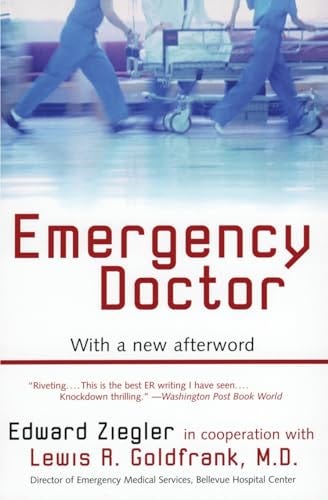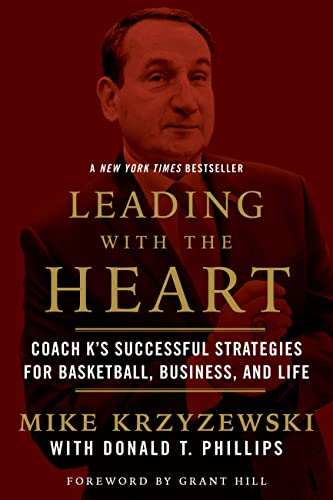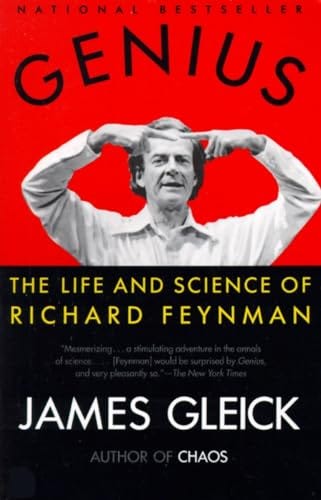From Gretzky to Goldfrank: What the Greatest Sports Statistic Taught Me About Living a Full Life
Three books can change your Thursday. One book can change your world.
Hello,
About ten years ago, I was sitting with my friend Ryan Sills, swapping sports trivia. He leaned in with a grin—the kind that says, “You’re not going to believe this one.” He said it was the greatest sports statistic ever.
“If Wayne Gretzky had never scored a single goal in his NHL career,” he said, “he’d still be the all-time points leader.”
I froze. That couldn’t be right. But it was.
In ice hockey, players earn points by scoring goals or assisting on them. Gretzky scored 894 goals—an astounding number on its own. But he also recorded 1,963 assists. Total career points: 2,857.
Even if he’d never put the puck in the net, his assist total alone would make him the greatest point-scorer in NHL history. The player in second place? Jaromir Jagr, with 1,921 total points—including both goals and assists.
So yes—if Gretzky had never scored once, he still would’ve stood alone at the top.
This trivia fact has stayed with me for years. But not because of the numbers. Not because it’s clever.
Because it reflects a different kind of greatness.
Gretzky’s greatness didn’t come just from finishing plays—it came from creating them. He made the players around him better. He elevated the people on the ice with him. He had vision, patience, humility, and a sense of where the puck was going, not just where it had been. He was brilliant not because he could do it all himself, but because he understood how to help others succeed.
And that’s what made him The Great One.
That stat came back to me recently after the news that Alex Ovechkin surpassed Gretzky’s all-time goals record with his 895th goal. An incredible achievement. Ovechkin is a generational talent, a machine on the ice. His name deserves to sit among the greats.
But as I read the headlines, I found myself thinking: scoring is only part of the story.
Because true greatness—the kind that endures—often has less to do with how many goals you score and more to do with how many people you helped score theirs.
And that’s not just hockey. That’s life.
We’re conditioned to chase our own goals. To build. To climb. To win. And yes, there’s a time for that. We need ambition. We need fire.
But at some point, the deeper question becomes:
What are you doing with your influence?
Who are you helping along the way?
Is the life you’re building lifting up the people around you?
Because in the long run, your assists may matter more than your goals.
The Buddha once said, “Thousands of candles can be lit from a single candle, and the life of the candle will not be shortened. Happiness never decreases by being shared.”
That quote hangs in my office. And I’ve started to see it everywhere—in mentorship, in parenting, in friendships, in leadership. Lighting someone else’s candle doesn’t take from your flame.
It multiplies it.
And in a world obsessed with the spotlight, there’s something quietly radical about showing up to pass the puck.
Assists don’t trend on social media. They don’t always get remembered. But over a lifetime, they compound. They shape people. They shape teams. They shape legacies.
So yes, score your goals. Celebrate them.
But if you want to build something that lasts—help someone else score theirs.
Because in the end, what defines you isn’t just how many points you put up—it’s how many people you helped rise along the way.
Welcome to this week’s Three Book Thursday.
1. Patient care
Emergency Doctor
Summary
Some books bring back memories. This one brings back moments.
Emergency Doctor is a raw, unfiltered window into what it’s like to practice emergency medicine at one of the busiest, most intense hospitals in the country—NYU/Bellevue. But for me, this book is more than that. It’s personal.
Dr. Lewis Goldfrank, who co-authored this book, was my chairman when I trained at Bellevue. And to say he had a profound impact on my life would be an understatement. His influence reached far beyond medicine. Yes, he shaped how I think about patients, decisions, and care. But he also shaped how I think about service, leadership, humility, and what it means to truly show up for others.
He’s one of a kind. And honestly, an entire Three Book Thursday post could—and probably should—be dedicated to him alone.
This book offers just a glimpse of what it was like to work alongside Goldfrank in the controlled chaos of the ER. It captures the grit, urgency, heartbreak, and humanity of emergency medicine in a way that feels both timeless and urgently current. The stories inside aren’t glamorized. They’re real. Sometimes messy. Sometimes tragic. Often beautiful.
Reading it, you begin to understand what made Goldfrank such a towering figure in medicine—not because he demanded excellence, but because he inspired it. He expected you to think. To care. To listen. And to always—always—put the patient first.
But Emergency Doctor isn’t just for doctors. It’s for anyone trying to make decisions in high-stakes environments. It’s for leaders trying to balance precision with empathy. It’s for people learning how to navigate stress without losing their soul in the process.
The biggest lesson? That urgency and humanity don’t have to be opposites. In fact, they can’t be—at least not if you want to do this work well.
What I learned at Bellevue—and what this book so vividly captures—is that life rarely gives you clean conditions or perfect timing. You make decisions in motion. You operate with limited information. You do the best you can for the person right in front of you. And then you move on to the next.
It’s exhausting. It’s imperfect. And somehow—it’s sacred.
Emergency Doctor will leave you with a deeper appreciation for the people who choose to step into the storm, over and over again. But more than that, it will challenge you to ask how you show up when things get hard.
Not just in the trauma bay—but in business, relationships, parenting, leadership, and life.
Because in the end, the medicine is just the backdrop. The real story is about presence, service, and the courage to care.
And no one lived that more fully than Dr. Goldfrank. This book is just a sneak peek into his world. But trust me—it’s enough to leave a mark. Just like he did on all of us who were lucky enough to learn from him.
Favorite Quote, Insight, & Principle
Quote: “There are no boring patients, only boring doctors.” -William Osler
Insight: Emergency medicine is about life–preserving it, defending it, restoring it.
Principle: If you are working with the underdog, striving to be a worthy patient advocate, you won't go wrong, even though you will often run afoul of the establishment.
Author: Edward Ziegler and Lewis Goldfrank, MD
Themes: Patient care, Residency training, Medical school, Emergency medicine
2. Leadership
Leading with the Heart
Summary
Some leaders demand excellence. Mike Krzyzewski cultivated it.
Leading with the Heart is part leadership manual, part memoir, and part reminder that the best teams—whether in sports, medicine, business, or life—aren’t built through systems and metrics alone. They’re built through connection. Through trust. Through shared purpose and emotional investment.
Coach K’s leadership philosophy isn’t flashy. It’s not built on gimmicks or buzzwords. It’s built on values. And that’s what makes this book stand out.
The central message is this: if you want to lead people well, you have to care deeply—and consistently. You have to know your people, challenge them, listen to them, and above all, believe in them. Not when it’s easy, but especially when it’s not.
Krzyzewski led Duke to five national championships and over 1,000 wins—not by shouting louder, but by building relationships stronger. His teams weren’t perfect, but they were bonded. He understood that accountability means more when it’s paired with loyalty. That discipline means more when it’s grounded in love.
There’s a particular kind of wisdom in this book that hits differently when you’ve led others through high-stakes moments—whether in a boardroom, an operating room, or even your own home. Coach K talks about preparation, resilience, dealing with failure, and learning how to lead from behind—not with ego, but with intention.
And maybe most importantly, Leading with the Heart reminds us that great leadership doesn’t come from position—it comes from presence.
It comes from showing up when it’s hard.
From asking more of your team because you see more in them.
From choosing connection over control.
That’s what stays with you after this book ends. The reminder that the people we lead aren’t looking for perfection—they’re looking for someone who sees them, pushes them, and walks beside them when things fall apart.
Coach K didn’t just lead from the sideline. He led from the heart.
And in a world full of noise, that kind of leadership still matters. Maybe now more than ever.
Favorite Quote, Insight, & Principle
Quote: “When we win a game, everything isn't right. And when we lose a game, everything isn't wrong.”
Insight: A leader that sets too many rules is making it appear that it is my team rather than our team. The truth is that many people set rules to keep from making decisions. Not me. I don't want to be a manager or a dictator. I want to be a leader–and leadership is ongoing, adjustable, flexible, and dynamic. As such, leaders have to maintain a certain amount of discretion.
Principle: When you first assemble a group, it's not a team right off the bat. It's only a collection of individuals.
Author: Mike Krzyzewski
Themes: Leadership, Coaching, Basketball
3. Biography
Genius: The Life and Science of Richard Feynman
Summary
Some lives leave behind a legacy. Richard Feynman left behind an orbit.
Genius isn’t just a biography of one of the most brilliant physicists of the 20th century—it’s a portrait of curiosity incarnate. James Gleick traces Feynman’s life from a precocious childhood in Queens to his central role in quantum electrodynamics, the Manhattan Project, and the Challenger disaster investigation. But this book isn’t just about equations. It’s about how one man approached life with relentless wonder, radical honesty, and a refusal to take anything—including himself—too seriously.
Feynman wasn’t conventional, and he didn’t try to be. He questioned everything. Challenged authority. Embraced complexity without arrogance. He was as comfortable cracking safes at Los Alamos as he was lecturing on subatomic particles. He played the bongos, painted, picked locks, and dove deep into whatever fascinated him—because the pursuit of understanding was the thing that fueled him.
And that’s what makes this book so relevant.
We live in a time of over-curated expertise and performative knowledge. But Feynman’s genius wasn’t just intellectual horsepower—it was his ability to stay curious, to ask better questions, and to remain rooted in reality even as he probed the outer limits of theoretical physics.
He had no time for pretense. He hated vague language, empty titles, and anything that felt disconnected from truth. And that’s a lesson we could all use: clarity over complexity. Depth over decoration. Curiosity over credentials.
Reading Genius reminded me that brilliance doesn’t require polish. It requires hunger. It requires a willingness to admit what you don’t know, and to keep showing up anyway.
Feynman’s life is a blueprint—not for becoming a physicist, but for becoming a better thinker. A more honest learner. A person whose intellect is matched by humility and playfulness.
Because in the end, being smart isn’t the goal.
Being fully alive to the questions that move us—that’s what makes a life extraordinary.
Favorite Quote, Insight, & Principle
Quote: “The imagination of nature is far, far greater than the imagination of man.”
Insight: It is much more interesting to live not knowing than to have answers which might be wrong.
Principle: The first principle is that you must not fool yourself—and you are the easiest person to fool.
Author: James Gleick
Themes: Biography, Science
We’re taught to chase the goal. To lead. To score. To make our mark. And somewhere along the way, we start to believe that value comes from being the one in the spotlight—the name on the scoreboard.
But greatness rarely works that way.
Wayne Gretzky didn’t earn the title The Great One just by putting pucks in the net. He earned it by making the people around him better. By seeing the play before it unfolded. By passing the puck—again and again—so someone else could take the shot.
And that’s the thread this week.
Emergency Doctor reminds us that the best doctors aren’t just the smartest—they’re the ones who show up when it’s hardest. The ones who lead by listening. Who pass on wisdom, presence, and calm in chaos.
Leading with the Heart shows us that leadership isn’t about being in charge—it’s about seeing potential in others and helping it rise. It’s about accountability paired with compassion.
And Genius reminds us that brilliance isn’t hoarded—it’s shared. Feynman’s legacy lives on not just because of what he knew, but because of how generously and playfully he gave it away.
That’s what this week is about.
The assist.
The impact that isn’t always noticed but is always felt. The quiet power of helping someone else rise.
Because in the long run, success isn’t just about how many points you put up.
It’s about how many people you helped believe they could put up their own.
Always ❤️📚💡
P.S. Ryan—still the greatest stat I’ve ever heard. Thanks for dropping that one on me, and for all the stories over the years. They’ve stayed with me—just like great assists always do.
Three Book Thursday is free, but there are many costs to create these posts each week. So, can you do me a favor?
If you find value here, please support the newsletter.
Or,
Please share Three Book Thursday with a friend, college, family member, or post it to your socials. I’m working hard to grow this audience, but let’s be honest—you’re probably better at it than I am.
Or, do both!






